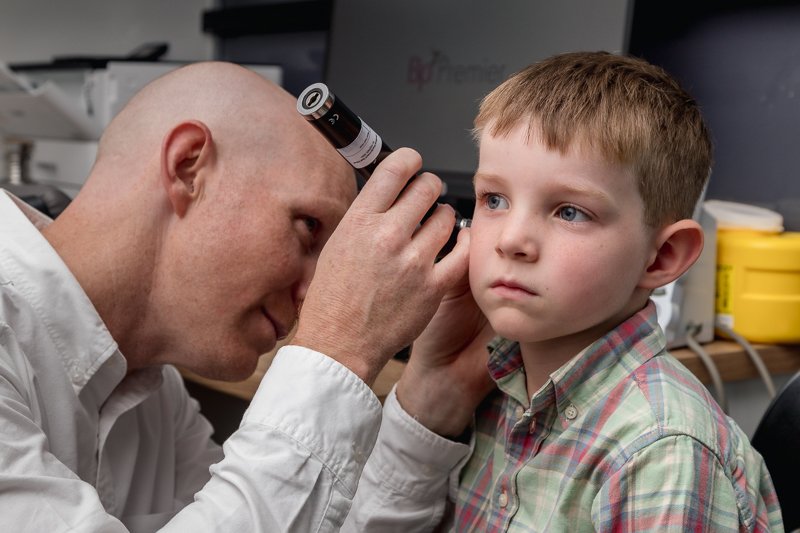AstraZeneca COVID-19 Vaccine: What To Know
COVID-19 raises our anxiety levels in so many ways, threatening health, job security, family reunions, holiday plans and so much else.
Maybe you’re also feeling anxious about the thought of getting the Astrazeneca vaccine. You might want to be vaccinated but not sure you want this particular vaccine.
The eligibility rules keep changing, the potential side effects sound scary and, with so many confusing messages, it sometimes feels like those in charge are making it up as they go along.
As GPs, we have as little control as you do over most of the ways COVID affects our lives. But we can help you decide whether or not to get the Astrazeneca vaccine. You’re welcome to come and talk it over with us. We can give you personalised advice when we’re looking at your medical records and responding to your particular questions.
By now, we’ve counselled many patients about the AZ vaccine. The same questions and concerns keep cropping up so here are our usual responses.
Why do the vaccine rules keep changing?
We’re tackling this one up top because it’s one of the most common questions patients ask.
You’ve seen the advice change in a relatively short space of time. First AZ was for over 50s, then only for over 60s and then suddenly every adult facing a Delta outbreak was encouraged to get it irrespective of their age. And instead of waiting 12 weeks to get the second dose, it’s now just a 4-week wait for those in a current ‘Hot Spot’, or 8 weeks depending on which state you are in. Confusing? Yes. Can we help clarify? Yes.
Despite how it may look, this changing advice is not evidence of chaos and confusion. It’s actually the application of our evolving knowledge. This how Science and the Scientific method works.
Vaccines are all initially rolled out with the optimal, ideal parameters that operated during their lab tests. Once the rollout starts, we then gather real-world data which can show us, for example, that sufficient immunity can develop with a lesser time interval between jabs meaning there might be benefits to a shorter 4-week interval between the first and second doses of AZ if there is significant community spread of the infection and protection is required more quickly.
The broader context may also change. As the level of background risk fluctuates, it’s natural that the recommendations change too. If COVID doesn’t seem much of a threat, then the risks of any vaccine have to be considered very carefully. If COVID is raging all around you, then the vaccine poses less risk to you than the disease does.
That’s why the Australian Technical Advisory Group on Immunisation (ATAGI) amended its recommendations on Astrazeneca to state that, in the context of a Delta outbreak, adults under 60 who don’t have immediate access to Pfizer should consider getting the AZ vaccine.
What’s the AstraZeneca vaccine eligibility in Queensland?
So, who is eligible for the AZ vaccine in Queensland now?
You can have the AZ vaccine if you:
Are over 60
Are aged 18-59 and:
○ Have made an informed decision based on an understanding of the risks and benefits or
○ Have had your first AZ dose without any serious side effects or
○ The benefits are likely to outweigh the risks for you.
You cannot have the vaccine if you had:
Anaphylaxis to a previous dose of the same vaccine
Anaphylaxis after exposure to any ingredient of the COVID-19 vaccine
The flu vaccine less than 7 days ago.
AstraZeneca Vaccine Efficacy
The vaccine’s role is not necessarily to stop you from catching COVID but rather to keep you:
Alive
Out of intensive care
Out of hospital.
Does that AZ vaccine do that? Absolutely, yes.
A Public Health England analysis of about 14,000 COVID cases found that two doses of the AZ vaccine was about 92% effective in preventing people with the Delta variant from becoming sick enough to need hospitalisation. Pfizer performs only slightly better at 96%.
What are the AstraZeneca vaccine side effects?
Yes, there are side effects to any vaccine (or any medical treatment, really).
Common, temporary side effects from the AZ vaccine include:
Pain or tenderness at the injection site
Tiredness
Headache
Muscle pain
Fever and chills.
Thankfully, those symptoms subside after 1-2 days.
The key side effect that people worry about with the AZ vaccine is the risk of thrombosis with thrombocytopenia syndrome (TTS), a rare but treatable blood clotting disorder that can occur 4-42 days after vaccination.
The Therapeutic Goods Administration keeps a record of any adverse events relating to medications or vaccinations in Australia. To 8 August 2021, they reported:
7.4 million doses of the AZ vaccine had been administered in Australia
105 cases linked to TTS (59 confirmed cases and 45 probable cases)
6 deaths.
As you can see, that means the vast, vast, vast majority of people who have had the AZ vaccine have not experienced serious side effects. A tiny percentage have developed TTS and about 95% of them got better.
Statistically, the riskiest part of getting a COVID vaccine is the drive to the clinic.
Where do you stand on the AstraZeneca vaccine vs Pfizer?
Now the Pfizer vaccine isn’t linked to TTS so would you be better to wait for that instead?
If you’re under 60 and pondering this, then we encourage you to make an appointment with your GP for advice tailored to your situation.
Generally, though, our thoughts are:
There is a widespread Delta outbreak across Australia’s eastern seaboard. It is creeping closer to the Queensland border and cases may well be found here soon.
Vaccination protects you from serious illness, making it much less likely that, if you catch COVID, you’ll need hospitalisation or treatment in the ICU
Vaccination reduces the transmission of COVID-19, helping protect your loved ones and wider community.
The best vaccination in a pandemic is the one you can get now.
What about herd immunity?
If you’re worried about the risks of vaccination you may be tempted to think you’d be better off letting everyone else get vaccinated and banking your own safety on herd immunity stopping community transmission.
Unfortunately, despite our hopes, it doesn’t seem that COVID-19 vaccines create herd immunity. Iceland has fully vaccinated over 85% of its adult population and partially vaccinated another 5%. In late June 2021, they decided to lift restrictions and return to ‘normal’ life. As expected, many, many people became infected with COVID-19 – more Icelanders than ever before in fact.
But here’s the good news: 97% of those vaccinated Icelanders with COVID-19 have only mild symptoms. They’re OK. Only 18 people have needed hospitalisation and only one has died (way back in May before the current wave).
COVID-19 is increasingly being described as ‘a pandemic of the unvaccinated’. That’s because a COVID vaccine primarily protects the person who had it, just like a seat belt protects the person who’s wearing it but not the person sat next to them who didn’t buckle up.
People who are not vaccinated remain at high risk of catching COVID-19 and are the most likely to experience serious illness or death: in the US, 99.5% of people killed by COVID are unvaccinated.
Getting your AZ vaccine at Peregian Family Medical Centre
Peregian Family Medical Centre is now offering the AZ vaccine to eligible patients. We encourage you to book your AZ vaccine now.
If you’re not yet sure or if you have questions about the AZ vaccine, then we encourage you to chat to your GP who can discuss the risks and benefits and explain what would happen on the day.
Disclaimer
All information is general in nature. Patients should consider their own personal circumstances and seek a second opinion.






